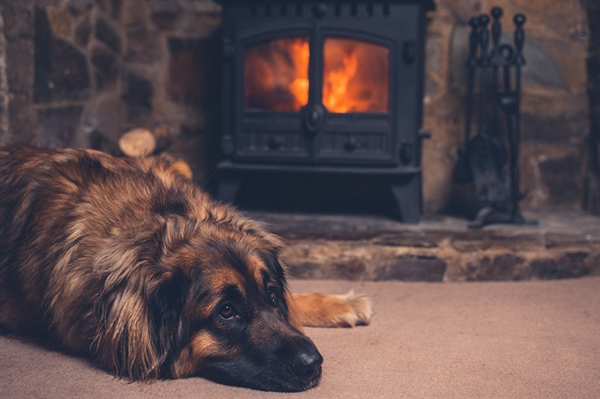There is no doubt that the way you heat your home has an impact on the environment, but by opting for sustainable heating methods, you can keep emissions and your carbon footprint minimal.
What is sustainable home heating?
First, let’s go right back to basics. What does sustainable domestic heating mean? Sustainable in an environmental context means using resources effectively to benefit ourselves now without making it harder for future generations to meet their own needs in the long term.
So sustainability means not using up resources that can’t be replaced – like the fossil fuels coal, oil and natural gas. It means not relying on resources and systems that can’t be extracted or used without damaging the environment (oh hallo again, coal, oil and natural gas). And it also means using resources (including those that can be renewed) efficiently to ensure our activities don’t have more impact on the environment than is strictly necessary.
Some examples of methods of home heating that are considered sustainable include:
- solar thermal heating systems
- heat pumps
- electricity from renewables
- biomass boilers and stoves
Solar thermal heating systems
Solar thermal heating systems use the sun to heat water for use in domestic taps. It’s not a complete heating system but it can reduce your heating bill. A solar thermal heating system has no running costs, but will need to be serviced every few years. The Energy Saving Trust says that installing a typical solar water heating system for a family of four will cost between £3,000-£5,000.
Are heat pumps sustainable?
Heat pumps capture heat from outside your home and move it inside using a system of heat exchangers, a compressor and an expansion valve, all powered by electricity. The Energy Saving Trust has a good explanation of how heat pumps work, as well as some answers to common questions about heat pumps. The cost of installing an air-to-water heat pump, which is the most common type in the UK, is £7,000 to £13,000. They are considered sustainable as the UK’s electricity is increasingly generated from renewables.
Electricity generated from renewables
As more of our electricity is generated by renewables (wind and solar), it is becoming a more sustainable way of heating homes, as well as powering heat pumps. Carbon emissions for electricity continue to fall, but it is still more expensive than gas and fossil fuels. The Energy Saving Trust has more information about the different ways you can heat your home with electricity.
Sustainable biomass heating systems
Biomass heating systems burn organic material, such as wood chips or logs, manure or household waste. Though it does give off carbon dioxide (CO2), the volumes are less than are produced by fossil fuels. A biomass heating system can heat an entire house, while a biomass stove will heat a single room. Read more about biomass heating for homes at The Energy Saving Trust.
Firewood logs can be cheaper than wood pellets or chips, but you’ll need a lot of them to heat a whole house. Logs need to be loaded into the boiler or stove by hand, whereas chips can be stored in a tank and fed in automatically.
Biomass boilers and wood stoves produce small quantities of ash, which you need to clean out and dispose of perhaps weekly or more often. HETAS has information about safe disposal of domestic ashes.
It’s also really important to get your chimney swept regularly if you are using wood as a fuel. This is to reduce emissions and prevent chimney fires. The National Association of Chimney Sweeps recommends getting chimneys for wood-fired appliances swept quarterly when they are in use.
How sustainable is wood as a heating fuel?
Firewood does produce carbon dioxide CO2 as it burns, but it is a carbon-neutral energy source. During its lifecycle, a tree absorbs CO2 in the process of photosynthesis. When it burns, this CO2 is released back into the atmosphere, just as it would if the timber were to rot on the forest floor.
You can improve the sustainability of the wood you use to heat your home by burning only dry, seasoned logs, as these will burn more efficiently in modern stoves.
You will also want to ensure that the firewood you buy is grown in a properly managed forest so that the harvested timber is replaced and the land is well managed. At Paradise firewood, we are committed to sourcing our wood from well managed woodlands and estates.
Sustainable firewood use also requires a good quality stove that is Ecodesign compliant. The UK Ecodesign regulation for solid fuel space heating appliances came into force on 1 January 2022, so any stove manufactured after that date should be compliant. The regulation has requirements about efficiency and about emissions of carbon monoxide, nitrogen oxide and organic gaseous compounds as well as dust emissions (otherwise known as particulate matter).
You can learn more about the Ecodesign regulations from the Stove Industry Alliance.
So which heating method is the most sustainable?
Homes and the people that live in them vary so widely that it is not possible to recommend one completely sustainable home heating system that will suit everyone. We do recommend getting expert guidance about the right heating system for your household to ensure you understand all the choices and the implications.

